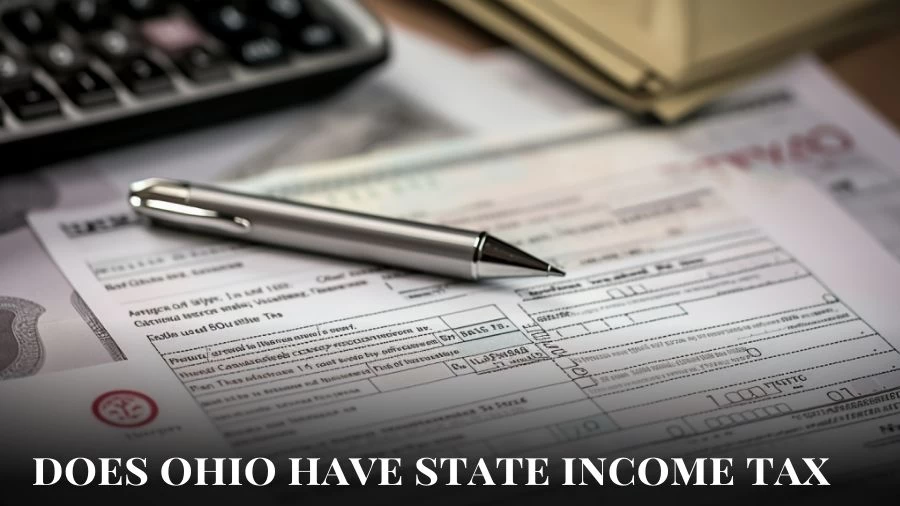
Does Ohio Have State Income Tax? What is the State Income Tax Rate in Ohio?
Does Ohio Have State Income Tax? Yes, Ohio does have a state income tax with rates varying from 0% to 3.99%, where individuals earning between $26,051 and $46,100 are taxed at 2.76%, while incomes over $115,301 are taxed at 3.99%.
by Sai V
Updated Aug 29, 2023
On This Page
- Does Ohio Have State Income Tax?
- What is the State Income Tax Rate in Ohio?
- Ohio State Income Tax Rate 2022
- How Much is Ohio State Income Tax?
- What is the Concept of State Income Tax?
- What Are Five Essential Pieces of Information to Understand Regarding Ohio State Tax?
- What Does Ohio's Standard Deduction Amount to?
- Is It Necessary for Me to Remit Ohio State Income Tax?
Does Ohio Have State Income Tax?
Yes, Ohio does impose a state income tax. This involves a progressive structure for individual income tax rates, spanning from 2.765% to 3.99%. While Ohio does not have a corporate income tax in place, it does enforce a gross receipts tax. It's important to note that certain jurisdictions within Ohio collect local income taxes. Additionally, the state applies a 5.75% state sales tax rate, and local sales tax can reach a maximum of 2.25%, resulting in an average combined state and local sales tax rate of 7.24%.
Remarkably, Ohio's overall tax system holds the 37th position on the 2023 State Business Tax Climate Index.Understanding Ohio's tax code entails familiarity with the specifics of its income tax rates for the 2022-2023 filing season. During this period, Ohio has streamlined its tax brackets to five, each correlated with distinct OH tax rates: 0%, 2.765%, 3.226%, 3.688%, and 3.99%. Notably, the highest tax rate in Ohio has been lowered to 3.99% from its previous high of 4.997%.
This shift follows a consolidation of tax brackets, reducing their count from nine to five. Presently, the tax rates remain unaltered, while the income tax brackets have expanded due to the annual inflation adjustment, covering income earned from January 1, 2022, through December 31, 2022. Prospects for the 2023 Ohio income tax rate involve a continuation of the existing rates, coupled with modifications to income tax brackets to align with the annual inflation adjustment.
What is the State Income Tax Rate in Ohio?
Ohio's state income tax rates vary based on your taxable income and residency status. The state employs five different tax rates: 0%, 2.76%, 3.22%, 3.68%, and 3.99%. Below are the tax brackets and the corresponding tax owed for each rate:
|
Tax Rate |
Taxable Income Bracket |
Tax Owed |
|
0% |
$0 to $26,050 |
None |
|
2.76% |
$26,051 to $46,100 |
$360.69 + 2.76% of excess |
|
3.22% |
$46,101 to $92,150 |
$915.07 + 3.22% of excess |
|
3.68% |
$92,151 to $115,300 |
$2,400.64 + 3.68% of excess |
|
3.99% |
$115,301 or more |
$3,254.41 + 3.99% of excess |
These rates and brackets dictate the amount of state income tax you would owe to Ohio, depending on your income level. It's important to note that tax laws and regulations can change, so it's advisable to consult official tax sources or a tax professional for the most current and accurate tax information.
Ohio State Income Tax Rate 2022
The Ohio State income tax rates for the year 2022 are structured into several tiers, each associated with different ranges of taxable income and corresponding tax rates. These brackets dictate the percentage of income tax individuals or households in Ohio would owe to the state government based on their filing status, including Single, Head of Household, Married filing jointly or qualifying widow(er), and Married filing separately.
|
Income Tax Bracket |
Tax Rate (2022) |
|
$0 to $25,000 |
0% |
|
$25,001 to $44,250 |
2.765% |
|
$44,251 to $88,450 |
3.226% |
|
$88,451 to $110,650 |
3.688% |
|
$110,651 and above |
3.99% |
How Much is Ohio State Income Tax?
Calculating Ohio state income tax involves considering both one's taxable income and their residency status. The state has designed its tax structure with a set of five distinct tax rates: 0%, 2.76%, 3.22%, 3.68%, and 3.99%. These rates are not uniformly applied but rather progressively correspond to different income ranges.
For instance, earnings falling within the $0 to $26,050 range are subject to a specific tax rate, while higher income brackets are subject to the appropriate rates. It's worth noting that these tax rates are intricately tied to an individual's income level and whether they meet Ohio's criteria for residency when it comes to tax matters.
What is the Concept of State Income Tax?
The concept of state income tax holds a significant role within the United States' taxation framework. Beyond the federal income tax structure overseen by the national government, a substantial number of individual states within the country have established their own distinct state income tax mechanisms. This parallel system introduces an additional layer of taxation, wherein individuals and entities are subjected to both federal and state-level income taxes, contributing to the overall revenue collection for state governance.
Moreover, the notion of state income tax is not limited to the state level alone. In some cases, local governments also exercise their authority to levy income taxes, frequently aligning these levies with the calculations derived from state income tax regulations. This interplay between federal, state, and local income taxation underscores the intricate and multi-tiered nature of the United States' tax landscape, necessitating careful considerations in financial planning and compliance for individuals and businesses alike.
What Are Five Essential Pieces of Information to Understand Regarding Ohio State Tax?
Online Portal for Tax Filing: Ohio provides a web-based platform to assist eligible individuals in electronically filing their taxes.
Reciprocity with Neighboring States: Ohio maintains reciprocity agreements with Indiana, Kentucky, West Virginia, Michigan, and Pennsylvania. If you're a resident of these states and your sole income originates from Ohio, you're not obligated to file Ohio income taxes.
Local School District Taxes: Some Ohio school districts may impose a separate tax, distinct from federal and state taxes. The state's online tool enables you to identify your specific school district and its corresponding tax rate.
Refund Offset Program: Administered by the Ohio Department of Taxation, the refund offset program empowers the agency to allocate part or all of a taxpayer's tax refund to settle outstanding tax dues.
Tracking State Tax Refund: If you're curious about the status of your Ohio state tax refund, you can conveniently check its progress and whereabouts.
What Does Ohio's Standard Deduction Amount to?
In Ohio, while a standard deduction equivalent exists, the state distinguishes itself by permitting specific income adjustments. These adjustments cater to various scenarios, including deductions tailored for military personnel, educational expenses, medical outlays, and contributions to select state-sponsored investment plans within Ohio. Additional insights and comprehensive information regarding these income adjustments can be located in the "Ohio Schedule of Adjustments" found within the Ohio IT 1040 tax documentation.
Is It Necessary for Me to Remit Ohio State Income Tax?
Yes, it is important to determine whether you need to file an Ohio state income tax return based on certain criteria.
- You are a resident or a part-year resident of Ohio.
- You earn income from a source based in Ohio.
Certain exemptions apply to determine whether you are required to file an Ohio state income tax return. For instance, individuals whose adjusted gross income (AGI) falls below $0, or those who possess specific tax credits surpassing their tax liability, might not need to file. The Ohio Department of Taxation provides more comprehensive information about the criteria for filing an Ohio income tax return.
Keep in mind that tax regulations can change, so it's advisable to cross-check this information using the latest resources or seek advice from a tax professional if you have specific inquiries about your tax status.
Does Ohio Have State Income Tax - FAQs
1. Does Ohio have a state income tax?
Yes, Ohio imposes a state income tax with varying rates based on income levels.
2. What are Ohio's state income tax rates?
Ohio's state income tax rates range from 0% to 3.99%, depending on your taxable income.
3. Is there a sales tax in Ohio?
Yes, Ohio has a state sales tax rate of 5.75%, with local sales tax potentially reaching up to 2.25%.
4. How are Ohio's income tax brackets structured?
Ohio's income tax brackets are divided into five tiers, with rates ranging from 0% to 3.99%.
5. Are there additional taxes in Ohio beyond state income tax?
Yes, certain jurisdictions within Ohio collect local income taxes, and the state enforces a gross receipts tax.




